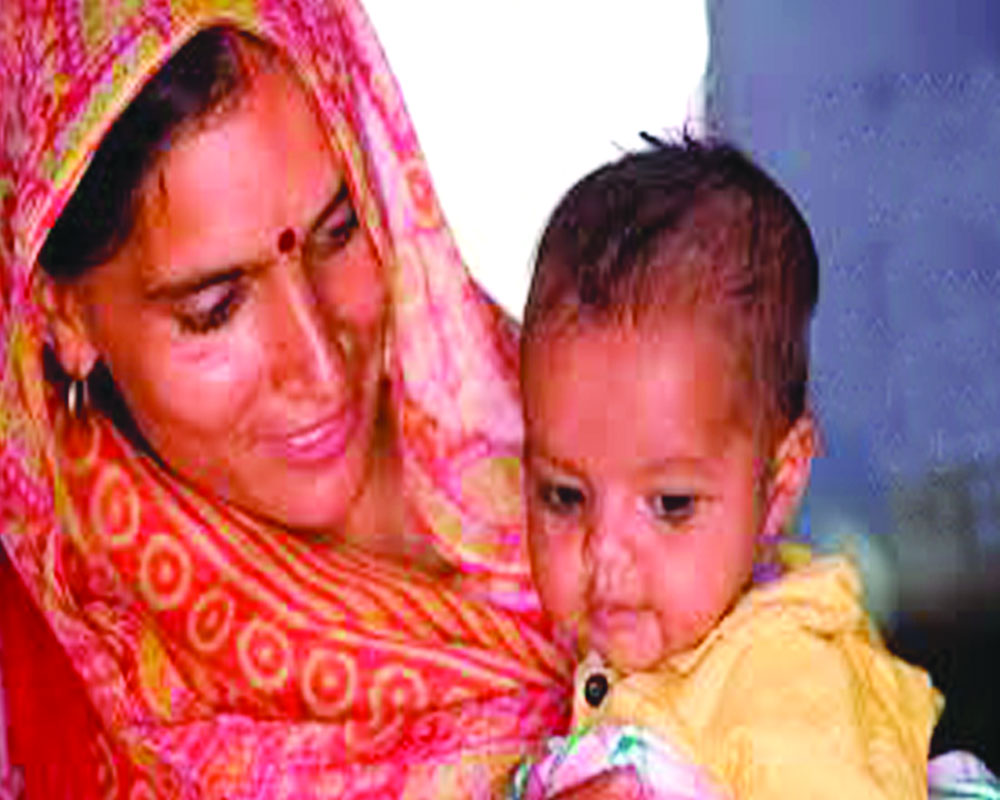Maternal & Neonatal Tetanus (MNT) elimination in India is a story of how the impossible was made possible. It is a remarkable milestone that india achieved before the target date
While interning in the department of pediatrics at a medical school in 1986, I came across a ward where young babies of generally less than 10 days of age were admitted with lock-jaw and stiffness of body. Barring a few, almost every newborn died and those who survived would have lived with disability. It was a very disturbing experience for a young physician taking baby steps in his medical career.
Around this time, as per WHO estimates, about 7,87,000 neonates die because of tetanus, and India contributes to 1,50,000-2,00,000 cases annually. The actual number may have been higher as these pregnancies and newborns were rarely registered. Majority of the babies were born to mothers in poor resource settings in rural agricultural areas who had no antenatal care and delivered at home assisted by untrained birth attendants. The moribund situation required radical solutions which focused around health systems strengthening in the country. In 2012, I was presented with the opportunity to effect a change, when I took over as Joint Secretary incharge of maternal and child health, Ministry of Health, the Government of India.
MNT can be eliminated
In 1989 during the 42nd World Health Assembly (WHA), the worldwide public-health community made a commitment to eliminate neonatal tetanus by 1995. However, due to slow implementation of recommended Maternal and Neonatal Tetanus Elimination (MNTE) strategies, the target date was shifted to year 2000. In 1999, when progress towards the attainment of the global elimination goal was reviewed by UNICEF, WHO and UNFPA, the initiative was reconstituted, and elimination of maternal tetanus was added to the goal with a 2005 target date, which was further moved to 2015.
The Global Polio Eradication Initiative (GPEI) and MNTE were declared by WHO in the years 1988 and 1989. However, polio eradication programme took precedence over MNTE, due to which, in many countries across the globe, including India, MNTE lost its priority to polio eradication. However, enthused by the global acknowledgement of India’s phenomenal feat of defeating polio, we resolved to achieve another milestone of MNTE, the target for which was December 2015. The process involved validation of States/UTs for MNTE one by on, but the progress had been slow. However, we in the Ministry of Health & Family Welfare had resolved not only to achieve the target but meet it before the December 2015 deadline.
Making MNTE possible
To achieve MNTE, the Health Ministry, with a lot of support from WHO-SEARO, adopted a unique and innovative approach. We utilised the elements of existing and new programmes which provided the synergistic take-off to make MNTE a reality for India. A three-pronged strategy was adopted. We focused on improving the Tetanus Toxoid (TT) coverage during pregnancy and systematic vaccination of pregnant women attending antenatal care (ANC) with tetanus toxoid (TT) containing vaccine, specially in high-risk areas. We intensified our efforts towards promotion of and demand creation for institutional deliveries. The implementation of two key schemes “Janani Suraksha Yojana (JSY)” and “Janani Shishu Suraksha Karyakram (JSSK)”, led to an increase in the overall institutional deliveries from approximately 40 per cent in year 2000 to close to 80 per cent in 2014. In addition, nearly 70,000 nursing personnel were trained and deployed, and more than 900,000 ASHAs (community mobilisers) were engaged. These helped to improve clean deliveries. These efforts were augmented by a wide behaviour change communication campaign to help reduce harmful cord care practices and promote clean cord practices.
All this together synergised well to realise the goal of MNTE in India before the revised target date. Today, Maternal and Neonatal Tetanus has reduced to less than one case per 1,000 live births in all districts of the country with total number of cases reduced to less than a double digit, a tremendous achievement for India. Not many of us know that India has established a remarkable example of achieving MNTE status much before the target date of December 2015. The hard work of team India led by the Union Ministry of Health & Family Welfare paid dividends and the rest is history. Acknowledging this as a global best practice, WHO has advised countries that are struggling to achieve MNT-free status to replicate India’s strategy.
Maintaining MNTE status
However, our dedication and efforts didn’t stop here. As the risk of tetanus persists, efforts were made to ensure MNTE is maintained — women and children are immunised, and clean deliveries and proper cord care activities are given boost.
The Health Ministry planned to sustain the achievements by health system strengthening, high routine immunisation coverage and promotion of institutional/clean delivery/clean cord practices and effective surveillance system. To ensure that countries, where MNT is a public health problem, get optimally benefitted from India’s experience, WHO nominated me as an expert to serve at the Strategic Advisory Group of Experts.
The two seminal achievements in quick succession, polio eradication (2014) and MNTE (2015), speak volumes about India’s strong commitment and leadership that helped improve access to immunisation, antenatal care services and skilled birth attendance in the most vulnerable populations. These are the poor, the remote and isolated communities where hygienic obstetric, postnatal practices and other health services were suboptimal or not accessible. And herein is the success story of India!
We, however, cannot afford to be complacent. In conclusion, our challenge is to maintain the MNTE status. We need to remain vigilant in high-risk areas. Any lackadaisical approach could be detrimental to the honour bestowed upon India for achieving MNTE before the target date.
(The writer is former Joint Secretary, Ministry of Health & Family Welfare, Govt of India)
























